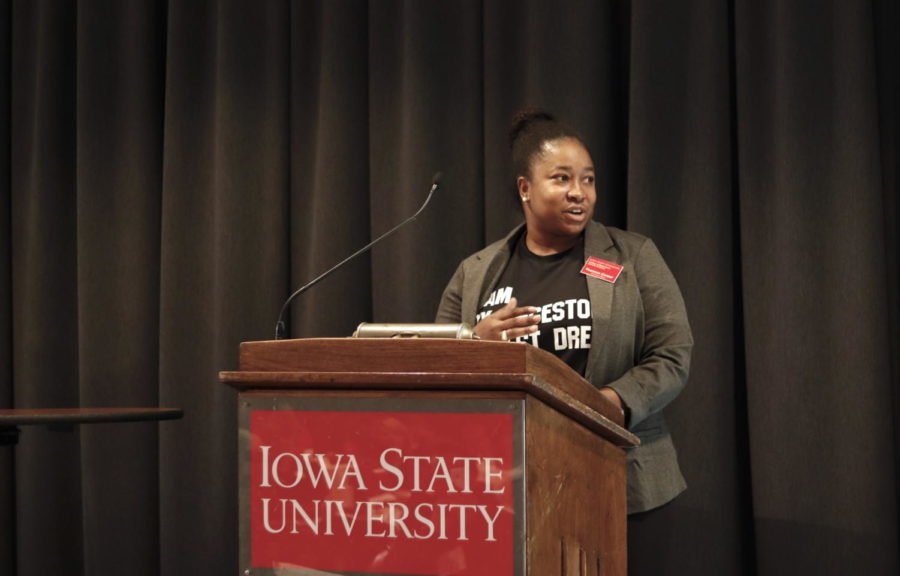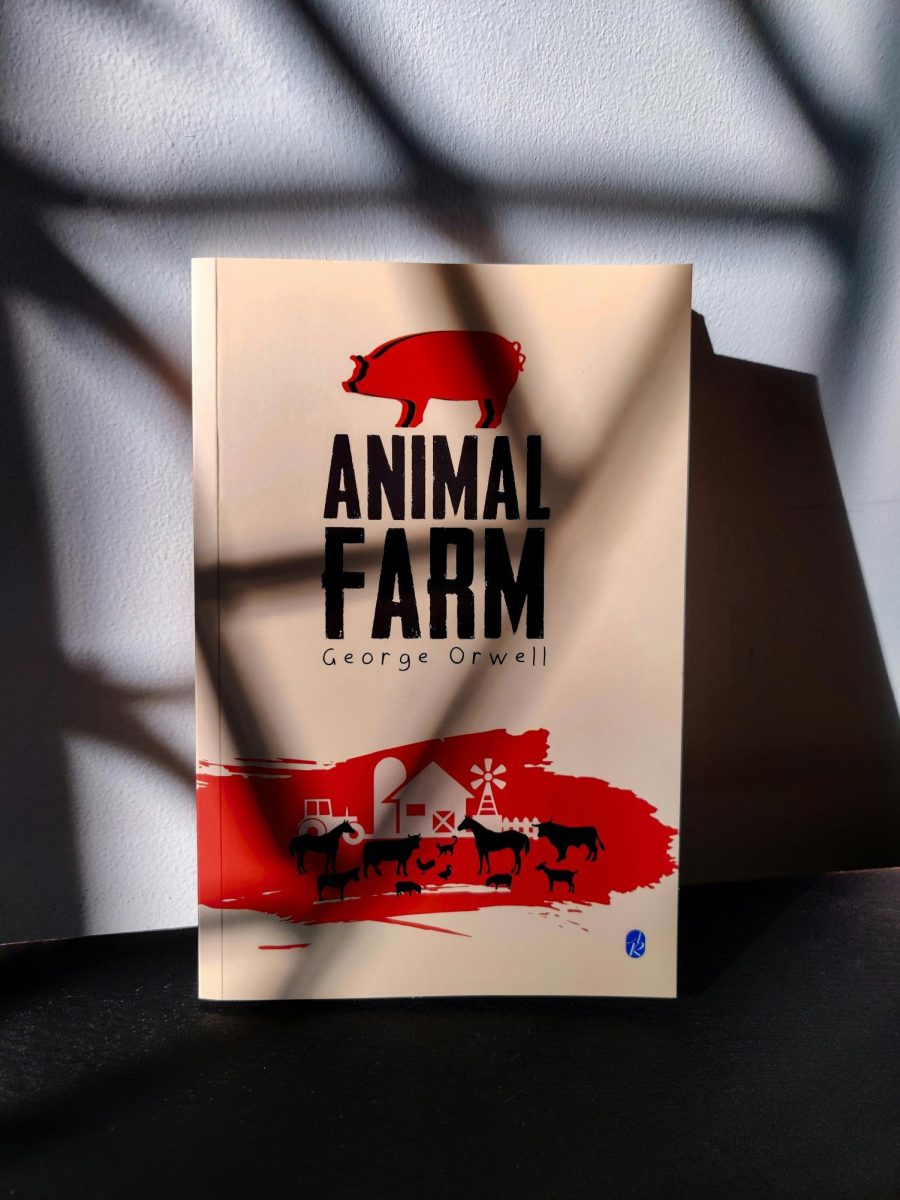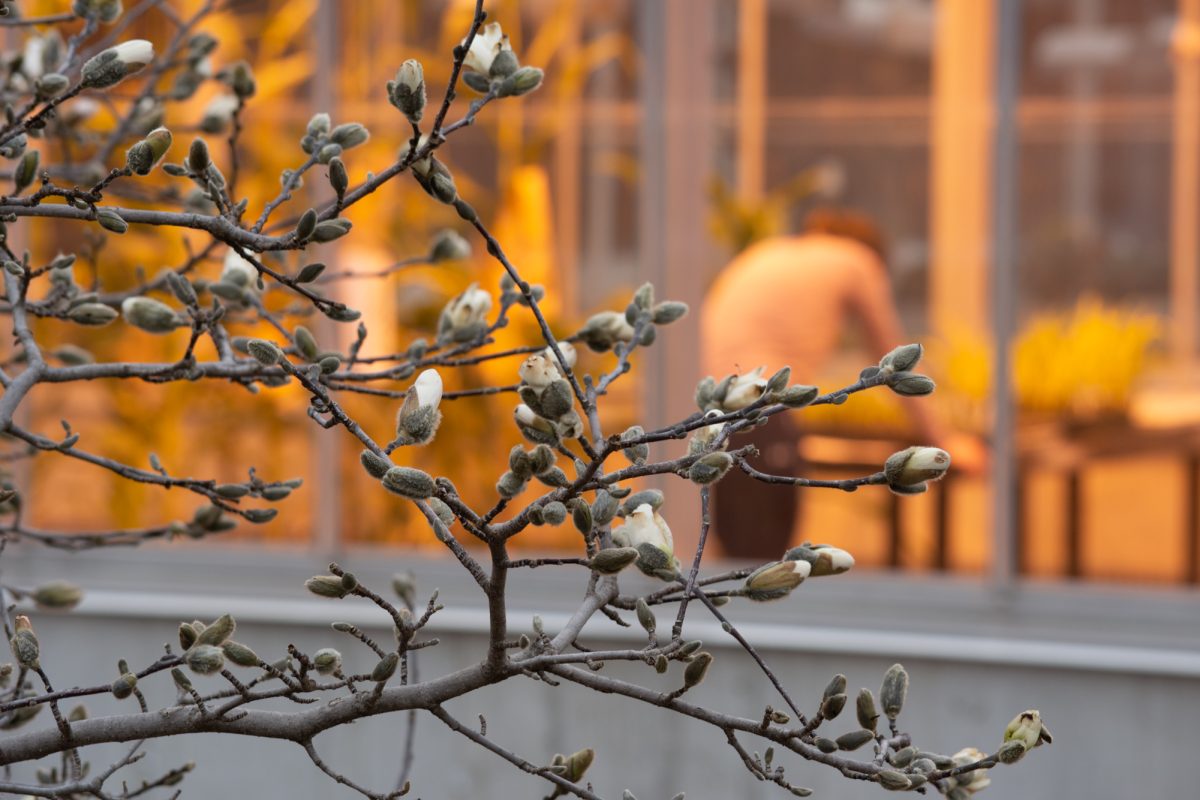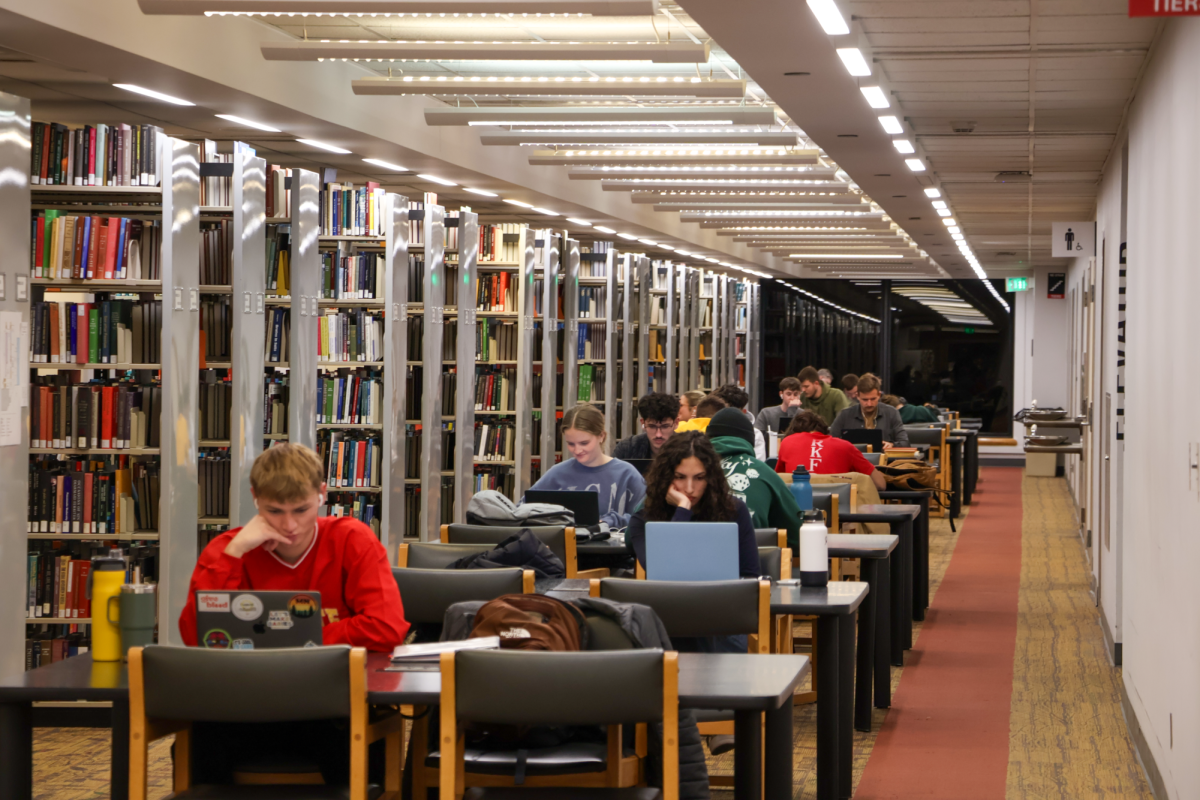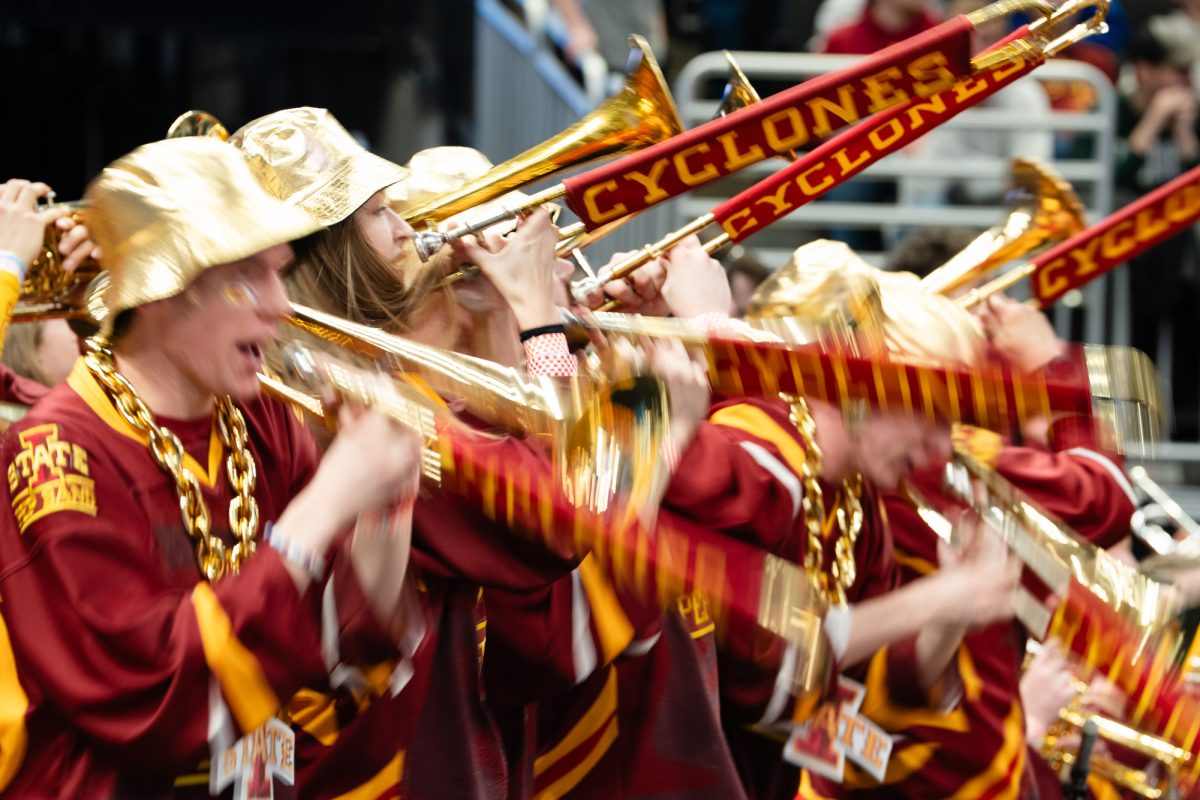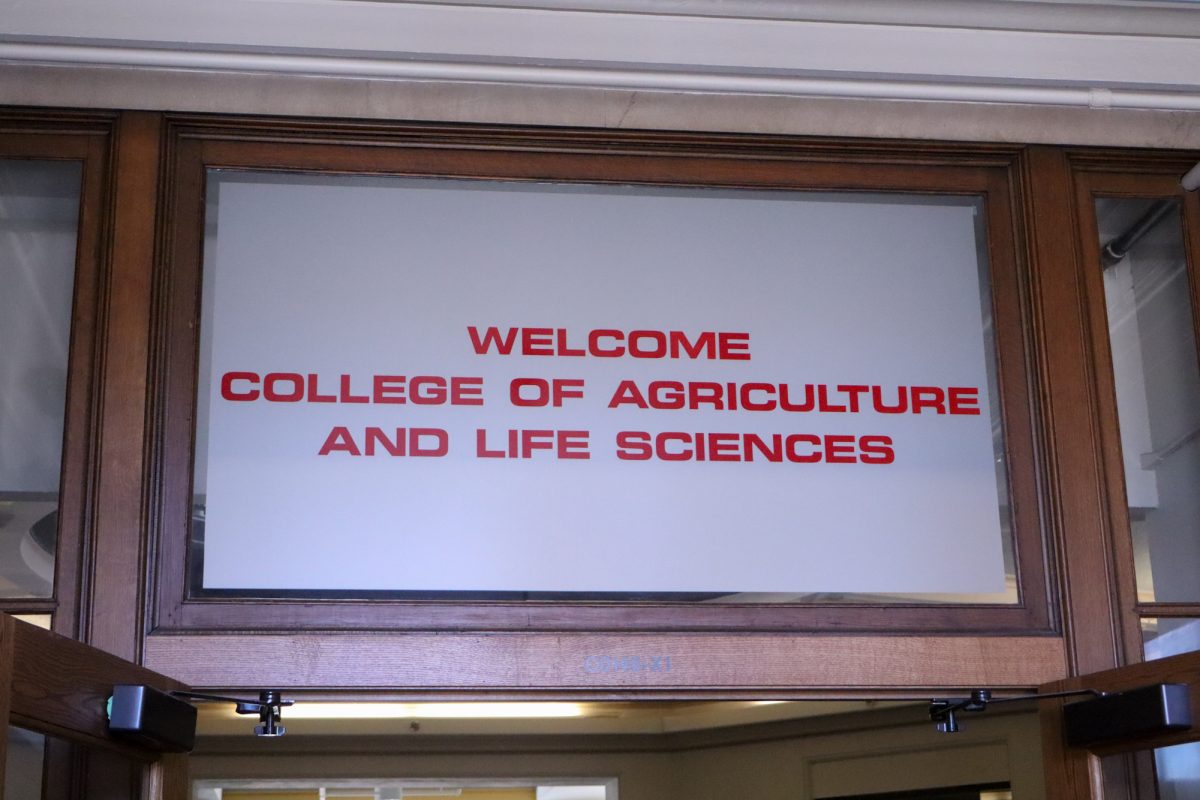ISCORE: Theressa Cooper delivers opening address
Theressa Cooper, who serves as the assistant dean for diversity for the Collegeof Agriculture and Life Sciences and adjunct assistant professor in the department of agricultural education and studies, delivers morning keynote for the 2019 ISCORE Conference on March 1.
February 24, 2019
Action and history were the themes of the 19th annual ISCORE’s opening discussion.
A video was shown documenting a visit to the national conference, which dissed issues of race and ethnicity in society, with a student offering her thoughts on different days of the conference and different topics which were spoken about.
Footage from different parts of the conference and the trip were shown throughout. One of Iowa State’s students filmed, edited and submitted this documentary of her attendance.
Japannah Kellogg, Director of the NCORE-ISCORE Office recognized Natasha Greene, Ashley Garrin and Jowelle Mitchell, three members of Iowa State’s administration who he believed were inspiring change in Iowa State’s community.
Nearly 1,098 people registered for ISCORE by closing of registration, which, Kellogg said, marked the second year that over 1,000 people registered. Over 200 people attended the ISCORE pre conference
Junior in psychology, Brandon Turner, shared a poem about pride and self love, his “sunlight” and owning his identity openly and proudly.
“Why try to keep a black boy in line just by stopping his shine, I am divine,” Turner said.
Iowa State president, Wendy Wintersteen, shared responses from a survey collected after last year’s ISCORE about how ISCORE impacted them.
One of the responses Winterseen read encompassed what, Wintersteen said, highlighted Iowa State’s mission.
“We must constantly learn we must constantly strive to understand and then we must pass our knowledge onto others,” Wintersteen said.
Wintersteen encouraged attendees to use the action plan within their programs to visualize the actions attendees will take after the program.
Beth McNeil, dean of library services, alongside the university library, were recognized as ISCORE champions
Assistant dean for diversity in the college of agriculture and life sciences, Theressa Cooper, said the underlying theme of her lecture would be the Twi word, sankofa, meaning, roughly, to go back and get something important.
Cooper recognized that the University itself is built on the land of the Iowa tribe of Kansas and Nebraska, the Iowa Tribe of Oklahoma and the Meskwaki Nation of the Sac and Fox Tribes of the Mississippi.
“We cannot move forward and do this work without acknowledging the people whose land we stand, and who really cultivated this area and a lot of times that’s whitewashed, and we don’t give voice and we don’t give language to those cultural groups, but today we are going to honor the people on whose land that we tread,” Cooper said.
While playing, “So, God made a farmer” Cooper showed a video that showed images of people of color farming as a counterpoint to a popular rendition which featured predominantly white farmers. She concluded by showing pictures of her grandparents, who were also farmers, and talking about how her ancestors and history drive her love for agriculture.
Cooper also shared the stories of her ancestors, saying that there was power in honoring those who came before her, and she encouraged attendees to reflect and do the same as she spoke.
Her grandfather, Cooper said, was born into slavery in Texas – even though at the time slavery had been constitutionally abolished, black people in Texas were still being born into slavery – but when he became free, he bought 200 acres of land and became a farmer.
Cooper highlighted her grandfather’s continued persistence, even though white people around him stole some valuable portions of his land. Even now, Cooper said, her family is still fighting to get back the 20 acres of their land that were seized under the false claim that her grandfather had not paid the notes he needed to.
Cooper said she had decided to find ways for young people to share the passion for agriculture she did and help people of color to find agency, engage with and pursue agriculture.
Living one’s truth, acknowledging personal agency and embracing one’s history, Cooper said, were things she hoped people could take away from her speech to help with the tough times and struggles one may face on their journey.
Even now when she goes home, Cooper said, her 92 year old grandmother still works that same land, and Cooper works it too, because that is her history, and she said that her history still informs her decision-making today.


